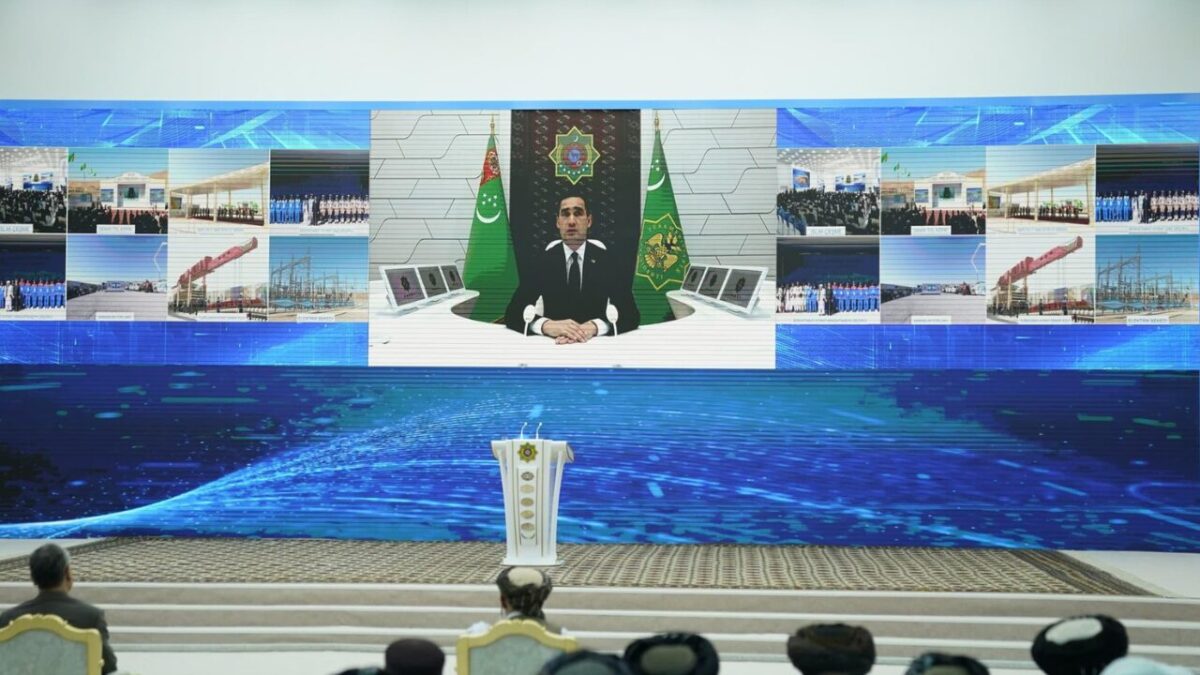Despite being under U.N. sanctions, Taliban chief minister Mohammad Hassan Akhund visited Turkmenistan on Wednesday to re-inaugurate the long-delayed TAPI Pipeline project, which was originally launched in 2018 with high-ranking officials from Afghanistan, Turkmenistan, Pakistan, and India.
The $10 billion TAPI project, designed to transport natural gas from Turkmenistan through Afghanistan to Pakistan and India, has faced numerous delays and has seen little practical progress in decades due to security concerns and regional political challenges.
The Taliban framed Akhund’s visit as an effort to restart the TAPI project and discuss broader transit initiatives with Turkmen officials. Despite the symbolic re-launch, practical work on the project remains in question. The pipeline was first inaugurated in 2018 with regional leaders in attendance, but its progress has since stalled.
“The TAPI project was a dream for the people of Afghanistan, and now it has been re-inaugurated, which is an achievement,” said Taliban spokesperson Zabiullah Mujahid, emphasizing the importance of the project for Afghanistan’s economic future.
Negotiations on the project have taken place over several years, with meetings between Turkmenistan, Afghanistan, Pakistan, and India in 2010, 2015, and 2018. However, security concerns and shifting political dynamics in the region have kept the project from moving forward.
Some experts remain skeptical about the viability of TAPI, particularly without India’s involvement. “TAP, which includes Turkmenistan, Pakistan, and Afghanistan, may be developed, but without India’s participation, TAPI will remain a distant dream,” said Sayed Masoud, a university lecturer and economist.
Footage of the ceremony, broadcast by Taliban-controlled media, notably omitted the flags of India and Pakistan, further fueling doubts about the project’s future.
The re-inauguration also drew criticism from former Afghan officials. Amrullah Saleh, former vice president under Ashraf Ghani, called the event little more than a publicity stunt. “The TAPI project has turned into a commercial advertisement due to changing relations between major powers, making its implementation unlikely,” Saleh wrote on X (formerly Twitter).
Afghan citizens have also voiced frustration, criticizing the Taliban for focusing on symbolic gestures while neglecting the country’s pressing economic and humanitarian needs.
TAPI, which stands for Turkmenistan-Afghanistan-Pakistan-India, is one of the region’s most ambitious energy projects. The pipeline is planned to extend from Turkmenistan to the Afghan provinces of Herat, Helmand, and Kandahar before passing through Pakistan and into India. However, the project remains mired in uncertainty as political and logistical challenges continue to impede its progress.




